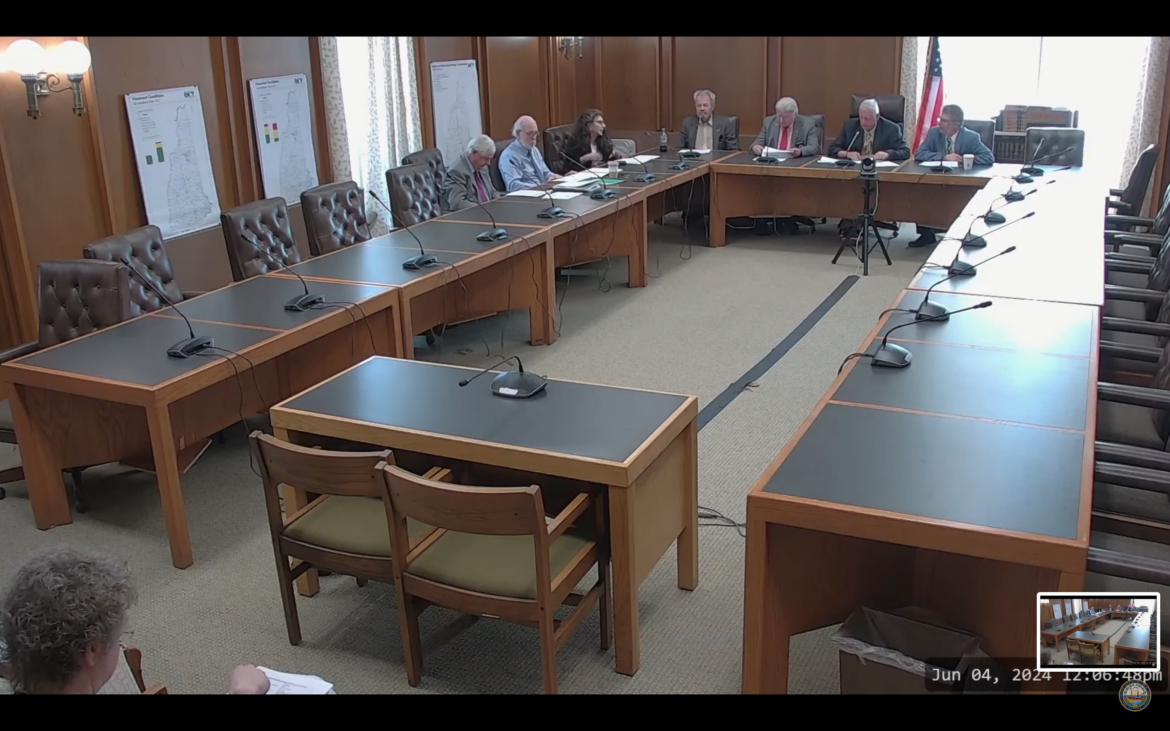By GARRY RAYNO, InDepthNH.org
CONCORD — House and Senate negotiators had a case of what the old Yankee sage Yogi Berra once said was “deja vu all over again” Tuesday between the town of Merrimack and its obligations for past highway projects.
The issue is no longer the tolls plazas constructed to pay for the additional exits and entrances the town wanted as they have all been removed, but Continental Boulevard and whether the state should continue to pay maintenance costs or turn it over to the town to maintain, which some claim was always the agreement if the toll plazas were removed.
The conferees did reach a tentative agreement on a plan to retain state maintenance of the boulevard for five years, which would include a state paving of the roadway in that time, and then the issue would come to a head again.
Senate President Jeb Bradley, R-Wolfeboro, who proposed the compromise, said the plan would give the town more certainty over the next five years, but the issue would come back again as soon as the next 10-year highway plan in two years.
“We could hold tight, we could threaten to walk, we could play chicken, somebody wins, somebody loses, maybe we don’t have a 10-year highway plan, maybe we do,” said Bradley. “But if we do not have a 10-year highway plan everyone loses. In conversions with Rep. McConkey, we both agree (killing) the 10-year highway plan over Continental Boulevard is a non-starter. That is just a reality.”
The two sides planned to meet again later Tuesday to sign off on the plan after they review the amendment.
Much like the additional exits along the FE Everett Turnpike, the town pushed the state to build the road to link the turnpike and Route 101a while creating easier and quicker access to industrial parks and corporate developments along the road.
The Department of Transportation has sought to turn the road over to the town to maintain for some time, but political pressure from the town and other sources have proved too powerful.
However, this year the House in developing its version of the state’s 10-Year Highway Improvement Plan, or House Bill 2024, reclassifies Continental Boulevard from a Class II roadway, owned and maintained by the state, to a Class V roadway, owned and maintained by the town.
The committee maintains the road has been an economic driver for the town and should no longer be a state road as it would better serve Merrimack if the town controlled it.
Several members of the House negotiating team noted the agreement has always been that if the toll plazas were removed from the three exits and entrances in the town, the town would take over maintenance of Continental Boulevard.
But town officials have said property taxpayers would immediately be hit with about $500,000 annually in expenses for the road when it is used by people from all over the state.
House negotiator Rep. Dan Eaton, D-Stoddard, said there isn’t a town road in the state that is used exclusively by residents of that town.
Eaton said Merrimack officials have “needled the state” to remove the tolls and maintain Continental Boulevard from the time they were built, adding “they have won, won, won. That road serves no purpose for the state.”
But Sen. Denise Ricciardi, R-Bedford, said the issue should not be the boulevard, but how lawmakers find additional resources for the Department of Transportation and the turnpike system.
Lawmakers should be trying to find a solution to that dilemma, she said, instead of holding Merrimack hostage for something that occurred years ago.
Sen. David Watters, D-Dover, agreed, saying in the next couple of years they have to find more revenues for transportation as fewer miles travelled, greater fuel efficiency and electric vehicles have impacted what the department can do.
Rep. Mark McConkey, R-Freedom, who chairs the House Public Works and Highways Committee, said the department has lost millions of dollars by removing the three toll plazas in Merrimack.
The turnpike system has been greatly impacted by the removals, he said, and the loss of revenue continues to erode the number of projects that can be done in other places.
The 10-year highway improvement plan totals nearly $3.5 billion over the next decade and the state transportation improvement plan totals around $5 billion.
A new improvement plan is developed every two years beginning at the local level with regional planning commissions and working its way through the Department of Transportation, the Executive Council, the governor’s office, the House and the Senate before the governor has the final say.
Garry Rayno may be reached at garry.rayno@yahoo.com.





